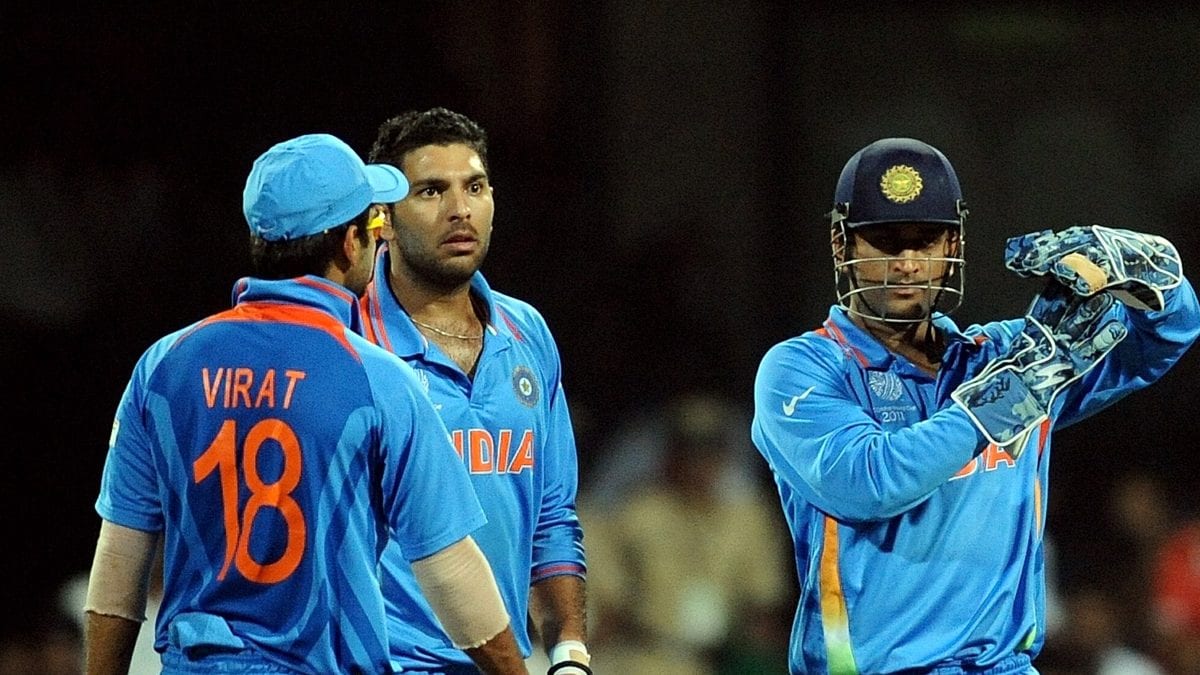MS Dhoni’s exceptional ability to judge when a decision needs a DRS review has been a topic of much discussion and admiration. He has earned the moniker “Dhoni Review System” for his uncanny knack of getting the calls right. This skill, developed through years of experience and deep understanding of the game, has often left players and umpires in awe. The renowned Indian umpire Anil Chaudhary, who has had the privilege of officiating numerous matches alongside Dhoni, shares his perspective on the former captain’s remarkable prowess in using the DRS.
Dhoni’s Mastery of the DRS
Chaudhary, a veteran umpire with extensive experience in various formats, recognizes Dhoni’s astute understanding of the game. He highlights that while no one can achieve a 100% success rate with DRS calls, Dhoni comes incredibly close to that mark. Chaudhary cites a specific incident where Dhoni’s decision to go for a review overturned an umpire’s decision, showcasing his exceptional judgment. His vast experience allows him to analyze every subtle nuance of the game and predict the likely outcome of a decision.
Experience – The Key to Accuracy
Chaudhary attributes Dhoni’s proficiency to his vast experience in the game. Having witnessed countless scenarios unfold over his illustrious career, Dhoni possesses an innate ability to gauge the intricacies of each situation. His unparalleled understanding of the game’s nuances, coupled with his unwavering focus, empowers him to make informed decisions regarding DRS. He can swiftly identify potentially controversial calls and determine whether seeking a review is the right course of action.
Wicketkeepers – Prime Witnesses to On-Field Decisions
Chaudhary emphasizes the importance of the wicketkeeper’s role in making DRS decisions. He notes that they have a privileged vantage point on the field, making them crucial witnesses to every play. They have an excellent view of the ball’s trajectory and its impact, giving them the best perspective to assess decisions. Their keen observations often serve as valuable inputs for umpires, helping them arrive at the right conclusions.
Pant’s Progress
Chaudhary also acknowledges the impressive development of current India wicketkeeper Rishabh Pant. He emphasizes that Pant’s understanding of the DRS system has considerably improved, highlighting his evolving skills. As Pant gains more experience, he is increasingly able to predict calls and contribute more effectively to the reviewing process.
Dhoni’s Potential as an Umpire
While not a formal umpire yet, Chaudhary believes that Dhoni’s extensive knowledge and strategic insights make him a potential candidate for umpiring. Dhoni’s expertise, combined with his deep understanding of the nuances of the game, makes him a natural fit for the role. However, Chaudhary highlights the commitment required for the role. Umpiring necessitates prolonged hours and unwavering focus, which are essential to deliver fair and accurate decisions.
Dhoni’s Decision Making
Dhoni’s exceptional decision-making abilities, both on and off the field, are evident in his astute use of DRS. His ability to anticipate calls and guide his team towards successful reviews has earned him the nickname ‘Dhoni Review System’. His ability to discern the subtleties of the game and make the right call during crucial moments has further cemented his legacy as one of the most successful captains in the history of cricket.
Takeaway Points
- Dhoni’s mastery of the DRS stems from his deep understanding of the game and vast experience. His knack for identifying potentially controversial calls and his remarkable accuracy make him an exemplary user of the DRS.
- Wicketkeepers have a vital role in the DRS process. Their unique vantage point allows them to observe the action from a vantage point which provides crucial insights.
- Dhoni’s potential as an umpire is evident. His knowledge and keen observation skills would undoubtedly benefit the umpiring panel, but commitment to the demands of the role would be a key factor in his success.




